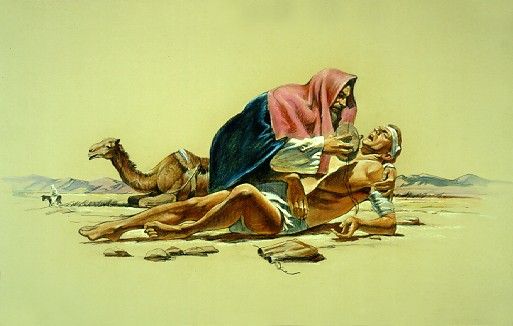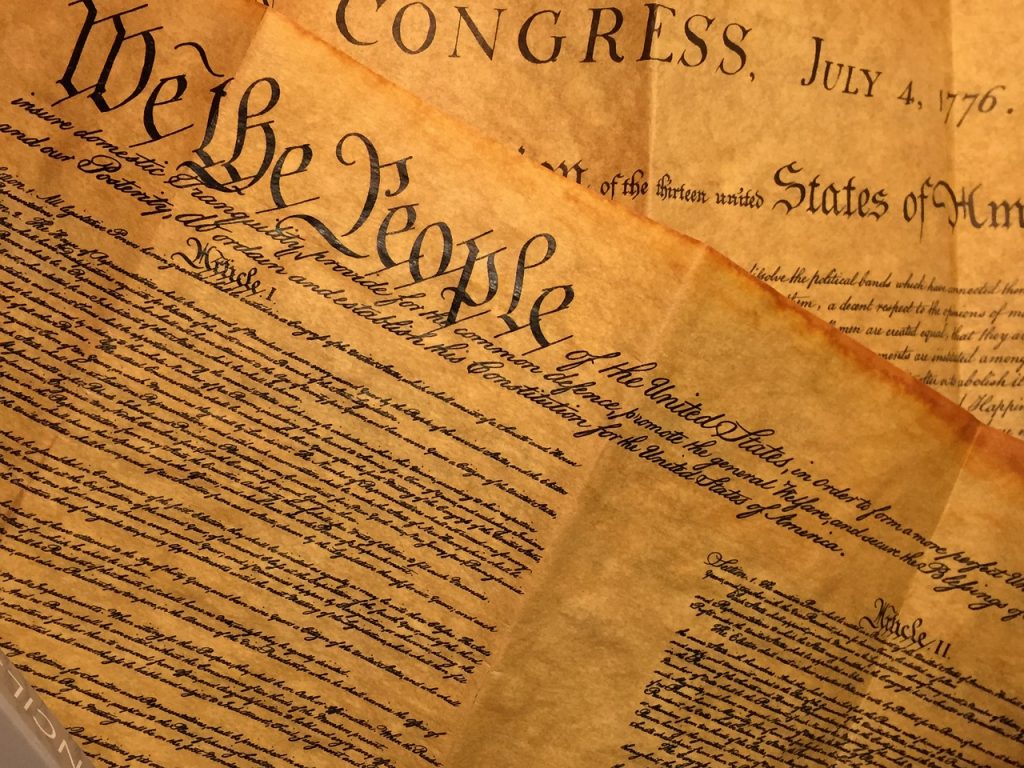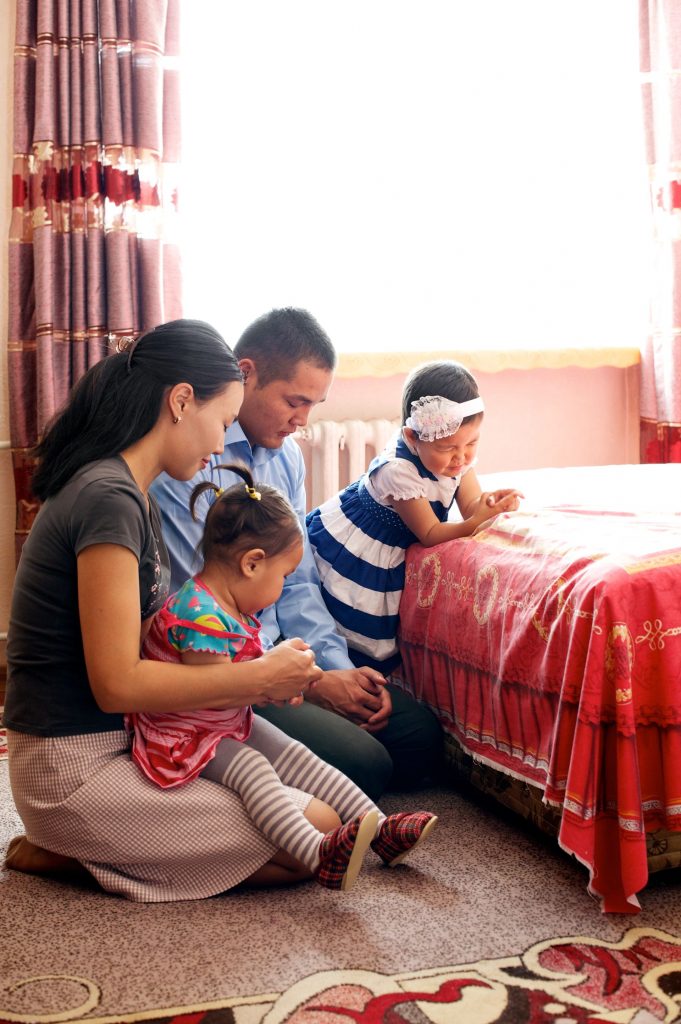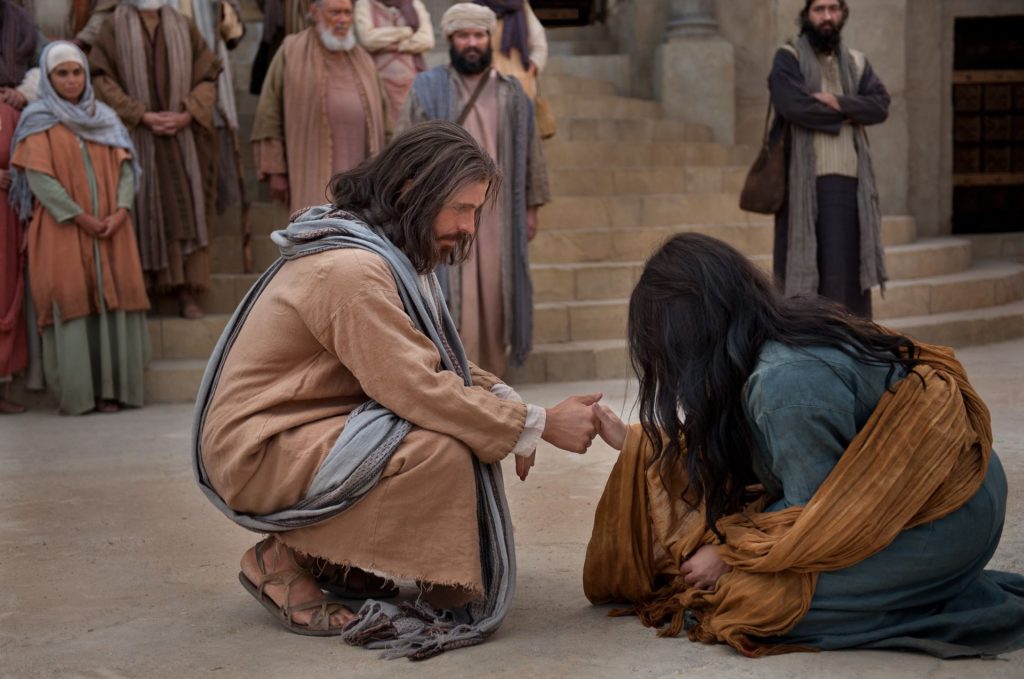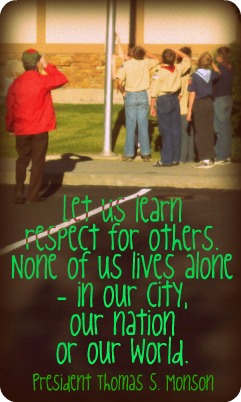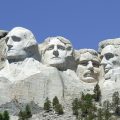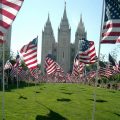The week of Memorial Day 2020 saw fireworks of the wrong kind as violence erupted in several large American cities over allegations of police brutality. But equally egregious was hearing people rationalize and justify the large-scale looting of stores, wanton destruction of property, and setting fire to city buildings—which caused even more casualties. Anarchy is the antithesis of what makes our nation great. America is great because she is free. And America is free because her citizens choose to obey the rule of law. When there is a problem or injustice, we seek to address it through the proper channels. Unfortunately, that often takes time. A lot of time. But we take this time so that we can investigate and find out all the facts so we can get it right, understanding all the facts and the proper remedy.
America is the land of the free and the home of the brave — the ideals espoused by our Constitution and Bill of Rights. Founded on teachings of the Savior. But we don’t always get it right. The answer when we fall short is found not in violence but in His doctrine. The scriptures teach,
… The preaching of the word had a great tendency to lead the people to do that which was just—yea, it had had more powerful effect upon the minds of the people than the sword, or anything else, which had happened unto them… (Alma 31:5).
The Rev. Martin Luther King Jr. understood this. He taught peaceful means to unite the country and relieve injustices. His teachings are still powerful today because they espouse the teachings of the Savior. We don’t need to tear apart our Constitution and laws to relieve injustice. We need to live up to them. Let me explain.
Power in the People
When the Founding Fathers created our Constitution, it was a revolutionary document that declared we the people had rights—and value—as individuals. Power was not only in the protections for the people but also in the people. President Dallin H. Oaks explained,
One of the great fundamentals of our inspired constitution… is the principle that the people are the source of government power.
… We affirm that God is the ultimate source of power and that, under Him, it is the people’s inherent right to decide their form of government. Sovereign power is not inherent in a state or nation just because its leaders have the power that comes from force of arms. … As the preamble to our constitution states: “We the People of the United States . . . do ordain and establish this Constitution.”
But with this power comes great responsibility to be good citizens and uphold the laws of the land. Author Peter Block said,
A citizen is one who is willing to be accountable for and committed to the well-being of the whole. That whole can be a city block, a community, a nation, the earth. A citizen is one who produces the future, someone who does not wait, beg, or dream for the future.
The antithesis of being a citizen is the choice to be a consumer or a client [Community: The Structure of Belonging (San Francisco: Berrett-Koehler Publishers, 2008), 63].
We are not merely consumers of what government can offer us but the builders of the nation.
The Power of Goodness
The power of the people comes from righteousness and working toward a common goal. French historian Alexis de Tocqueville wrote,
I sought for the greatness and genius of America in her commodious harbors and her ample rivers, and it was not there; in her fertile fields and boundless prairies, and it was not there; in her rich mines and her vast world of commerce, and it was not there. Not until I went to the churches of America and heard her pulpits aflame with righteousness did I understand the secret of her genius and power. America is great because she is good, and if America ever ceases to be good, America will cease to be great (Jerreld L. Newquist, comp., Prophets, Principles and National Survival, Salt Lake City: Publishers Press, 1967, p. 60).
The Founding Fathers understood this principle as well. John Adams said,
Our Constitution was made only for a moral and religious people. It is wholly inadequate to the government of any other (The Works of John Adams, ed. C. F. Adams, Boston: Little, Brown Co., 1851, 4:31).
The power of America is the goodness of her people. People who obey the laws of the land because they choose to do so. But this doesn’t always insulate us from injustice and others who would do us harm.
The Root of Division
Our American ideals are freedom and justice for all. Unfortunately, throughout our nation’s history, we have seen time and again what seems like freedom for some and injustice for others. We have seen discrimination based on color, religion, or nationality, just to name a few. As a multi-generational member of The Church of Jesus Christ of Latter-day Saints (sometimes mistakenly called Mormons or the Mormon Church), my ancestors faced persecution based on religion. They were driven from state to state and finally left for the Rocky Mountains to find peace. Persecution can turn into an “us versus them” mentality. But this division itself is our greatest challenge. We turn to comparing ourselves to others and what we have or don’t have. We point fingers and blame. This just deepens the divide and weakens us as a country.
The Lord’s counsel to the Latter-day Saints was to work together and help each other. He said,
… Let every man esteem his brother as himself.
For what man among you having twelve sons, and is no respecter of them, and they serve him obediently, and he saith unto the one: Be thou clothed in robes and sit thou here; and to the other: Be thou clothed in rags and sit thou there—and looketh upon his sons and saith I am just?
Behold, this I have given unto you as a parable, and it is even as I am. I say unto you, be one; and if ye are not one ye are not mine (Doctrine & Covenants 38:25-27).
This same counsel applies today. If we are to be one, then we must treat each other as such. Instead of seeing differences, we need to see commonalities. The root of division comes when we don’t.
Injustice for One, Injustice for All
I have been hooked on documentaries lately. And one theme that I found interesting is that when one group of people is being targeted, no one is safe. The Prophet Joseph Smith, the first modern prophet in The Church of Jesus Christ, realized that the early Saints could not expect to be treated fairly when the God-given rights of many Americans were not being recognized. So he decided to run for president of the United States in 1844, including in his platform the abolition of slavery. The Prophet Joseph said,
I would not have suffered my name to have been used by my friends on anywise as President of the United States, or candidate for that office, if I and my friends could have had the privilege of enjoying our religious and civil rights as American citizens, even those rights which the Constitution guarantees unto all her citizens alike. But this as a people we have been denied from the beginning. Persecution has rolled upon our heads from time to time, from portions of the United States, like peals of thunder, because of our religion; and no portion of the Government as yet has stepped forward for our relief. And in view of these things, I feel it to be my right and privilege to obtain what influence and power I can, lawfully, in the United States, for the protection of injured innocence (History of the Church, 6:210–11).
It wasn’t long after he declared his candidacy that he was martyred. And it took many more years and a bloody Civil War before slavery was finally abolished. Then more years for women to have the right to vote. Many of the justifications used to persecute one group were used in persecuting another. Because injustice for one is injustice for all.
The Stain of Contempt
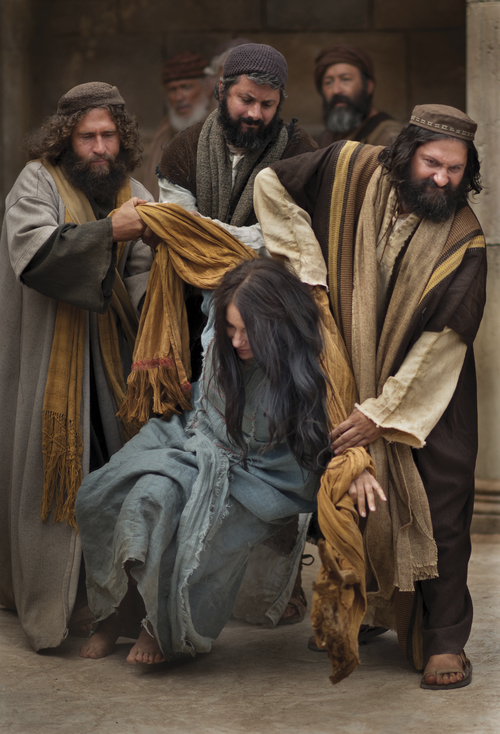
A group of angry men seek to stone a woman taken in adultery. But the Savior showed her compassion, telling her to “Go and sin no more.”
Although we’ve come far as a nation, injustice continues today. It’s a reality that we must overcome. We are imperfect people living in an imperfect world. Sometimes even good people make really bad choices. But rather than work to fix the problem, many are making things worse. Social scientist and author Arthur C. Brooks said,
If you pay attention to politics or television or social media, what do you see today? You see recrimination, reproach, insults, and sarcasm. You see leaders at the highest levels of our country who bully and berate those with whom they disagree. You see families torn apart over political disagreements. You see political foes who treat each other as enemies.
People often characterize the current moment in America as being “angry.” If only this were true. Anger is an emotion that occurs when we want to change someone’s behavior and believe that we can do it. … The problem is not anger—it is contempt. In the words of the nineteenth-century philosopher Arthur Schopenhauer, contempt “is the unsullied conviction of the worthlessness of another.” …
When we see others as worthless, we can justify mistreating them. Brooks continued,
… Contempt … can tear a country apart. America is developing a “culture of contempt”—a habit of seeing people who disagree with us not as merely incorrect or misguided but as worthless.
This is causing incredible harm to our country. One in six Americans have stopped talking to close friends and family members over politics since the 2016 election. Millions are organizing their social lives and curating their news and information to avoid hearing viewpoints differing from their own. Ideological polarization is at higher levels than at any time since the American Civil War.
The stain of contempt leads to injustice and division rather than compassion and mercy.
Responding to Injustice
So how should we respond to injustice? Brooks taught,
Some say we need to agree more, but that is wrong. Disagreement is good, because competition is good. It makes us sharp and strong, whether in sports, in politics, in economics, or in the world of ideas. We don’t need to disagree less; we need to disagree better. Other people say we need more civility. But that is wrong too, because civility is a hopelessly low standard for us as Americans. …
If we are going to beat the problem of contempt, we are going to need something more radical than civility—something that speaks to our heart’s true desire. We need love, which was defined by Saint Thomas Aquinas as “to will the good of the other.” We need a new generation ready to model lives of love in the midst of a culture of contempt.
Love is what the Savior taught. The first and greatest commandment is to love God, and the second is to love our neighbor as ourselves. Loving God means obeying His commandments. Loving our neighbor means showing mercy and helping them. Brooks said,
Make no mistake, this isn’t easy to do. It requires people who will not run away from the problem, who are unafraid to infiltrate the culture of contempt, and who are capable of modeling a better set of values. This requires the agility to be in the culture but not of it. When you think of it, it is kind of like missionary work, isn’t it? Missionaries have the training and experience to participate in society without getting sucked into its pathologies. They have the courage and fortitude necessary to face resistance and go forth with the joy that comes from sharing the truth.
Finding Forgiveness
When we seek to love others, forgiveness often follows. The Savior taught us powerful lessons on forgiveness in word and in deed. In His Sermon on the Mount, Jesus taught,
Ye have heard that it hath been said, Thou shalt love thy neighbour, and hate thine enemy.
But I say unto you, Love your enemies, bless them that curse you, do good to them that hate you, and pray for them which despitefully use you, and persecute you. (See Matthew 5:38–44.)
As He hung on the cross, the Savior sought forgiveness for those who were crucifying Him. And through His sacrifice, we can find forgiveness. President Gordon B. Hinckley said,
Somehow forgiveness, with love and tolerance, accomplishes miracles that can happen in no other way.
The great Atonement was the supreme act of forgiveness. The magnitude of that Atonement is beyond our ability to completely understand. I know only that it happened, and that it was for me and for you. The suffering was so great, the agony so intense, that none of us can comprehend it when the Savior offered Himself as a ransom for the sins of all mankind.
It is through Him that we gain forgiveness.
There are powerful stories of forgiveness that bring light and hope into the world. One example is found in the Amish community, who forgave the gunman who stormed into a schoolhouse and shot and killed six girls and injured five others before killing himself. Elder James E. Faust said,
How could the whole Amish group manifest such an expression of forgiveness? It was because of their faith in God and trust in His word….
America’s Greatness
The power and healing that came from the Amish forgiving the man who shot and killed innocent girls was immense. As a show of their forgiveness, they reached out to the man’s suffering family. Elder Faust said,
Collectively they began to reach out to the milkman’s suffering family. As the milkman’s family gathered in his home the day after the shootings, an Amish neighbor came over, wrapped his arms around the father of the dead gunman, and said, “We will forgive you.” Amish leaders visited the milkman’s wife and children to extend their sympathy, their forgiveness, their help, and their love. About half of the mourners at the milkman’s funeral were Amish. In turn, the Amish invited the milkman’s family to attend the funeral services of the girls who had been killed. A remarkable peace settled on the Amish as their faith sustained them during this crisis.
It is through this goodness that we find America’s greatness. Brooks taught,
America is a beacon of hope for the rest of the world. We are an example of democratic capitalism that has pulled two billion of our brothers and sisters out of starvation-level poverty over the past half-century alone. This is a nation that has attracted you or your ancestors with the promise of equal opportunity, religious freedom, and a good life for you and your family. When America is torn apart, we become incapable of living up to the plan—the holy plan—for our nation, which is to shine a light for the rest of the world.
Peaceful protests and calling for reform when needed is appropriate. It’s part of being a good citizen. We need to stand up for what is right. But we can’t do that if we are committing egregious crimes against others in retaliation.

